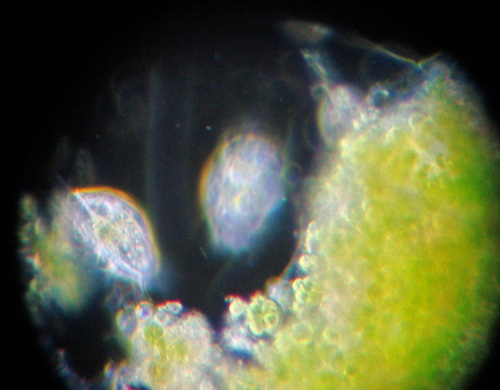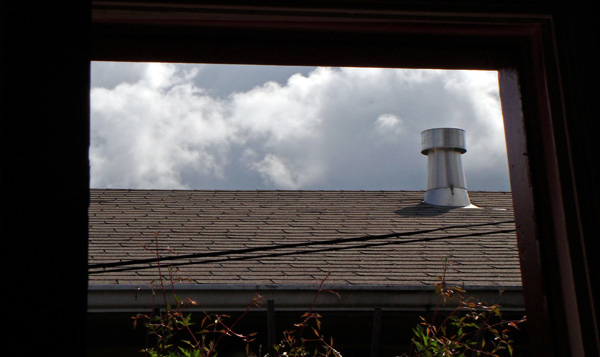Today I’m presenting an email dialog I had with Jeff Weeks about the whether the space of our universe is infinite.

Rudy: I mentioned in my most recent blog post, “Is the Universe Infinite” , that there seem to be three notions of space’s size. (i) it’s finite (ii) it’s potentially infinite, in that it’s finite but will expand forever (iii) it’s actually infinite. As a one-time set theorist, I of course would prefer (iii). But I don’t read much about this option.
Jeff: The reason you don’t hear much about that is that cosmologists don’t like to talk about things that can’t be tested against observation. So, for example, they are willing to consider the hypothesis that the universe is smaller than our horizon sphere (in which case we could in principle see repeating images and confirm the finiteness of space). But if and when it’s established that the universe is sufficiently larger than our horizon sphere, then many (but not all) cosmologists lose interest in discussing whether its truly infinite or just very, very big.

Rudy: In a quick web search, I see some (non-academic) people arguing against infinite universes on more a priori reasons, but these seem simply to be rehashes of pre-Cantorian Scholastic arguments derived from the mistaken notion that an actual infinite is inherently contradictory.
Jeff: Most (but not all) cosmologists avoid stating an opinion one way or the other (re a finite or infinite universe). They take the view that if you can’t test a hypothesis against observations, then it’s not worth discussing. In my view that approach seems a little extreme, but on the other hand I can see where they are coming from. Many physicists feel burnt (or at least chastened) by quantum mechanics, leading them to seek refuge in the idea that the purpose of science is to predict the results of experiments, and that scientists shouldn’t waste their time speculating about what it all means. I don’t agree with that approach, but like I said I can see where they’re coming from. Anyhow, for that reason I think most cosmologists are agnostic on the question of a finite or infinite universe.

Rudy: I guess you’d need to be in 4D space to smoothly make the 3D torus or the Poincare dodecahedron.
Jeff: We humans like things to sit in Euclidean spaces, because we can imagine them more easily that way. But Mother Nature suffers no such limitations. Thus it makes perfect sense to imagine a 3-torus that doesn’t sit in 4D space (and in fact doesn’t sit in *any* space). It just is. It’s itself, and that’s that.
By the way, one of my motivations for writing the Torus and Klein Bottle Games was to let users develop some gut-level intuition for a finite multi-connected space that doesn’t sit in any higher-dimensional space. That is, when you play the games, you learn to understand the finite 2D surfaces “as themselves”, never having to wrap them around in 3- or 4-dimensional space.

Rudy: I’m not fully clear on how to express the difference between the hypersphere and the positively curved finite compact Poincaré dodecahedral space. I’m guessing it’s that the Poincare space is analogous to a multiple-genus surface with holes in it? Six holes?
Jeff: Yes, exactly, the Poincare dodecahedral space is analogous to a multiple-genus surface, in the sense that both are “multiply connected”.
The possible shapes for a 3D space are far richer than the possibilities for a 2D surface. So while a simple concept like the number of holes (or, equivalently, the number of handles) works great for classifying 2D surfaces, it breaks down in 3D. In other words, the set of (orientable) 2D surfaces is linear in the sense that you can line ‘em up in a row and not miss anything, like:
sphere, doughnut surface, 2-holed doughnut surface, etc.
But the set of possible 3D shapes isn’t linear in that way. A more productive way to think about 3D spaces is to focus on which directions you could travel to return to your starting point, or, equivalently, in which directions you could look and see an image of yourself. For example, in a 3-torus you’d see your nearest self-images along a set of three mutually perpendicular axes (i.e. if you’re standing at the center of a cubical fundamental domain, and you direct your gaze towards the center of any of the cube’s six faces, you’ll see an image of yourself “one unit away”). In the dodecahedral space, by contrast, you can look towards any of the dodecahedron’s 12 faces to see a nearest self-image. You can enjoy these effects first hand in my Curved Spaces software: just open a space of interest and use the left- and right-arrow keys to give your a little window to see across each of the walls.

Rudy: I’m also groping for a good way to describe some in-space scenario that would make the “holes” evident.
Jeff: Maybe something related to where you see your self-images? Another interesting twist in the plot would be that when you see those images, you’re seeing into the past (because of the finite speed of light).
One last comment here: In the hypersphere you see exactly one image of yourself, and in fills the whole sky. I think that observation was in your first book, Geometry, Relativity and the Fourth Dimension ? That book had a big influence on my intellectual development. It was a real hit among my math/science friends!

Rudy: Your paper “The Poincaré Dodecahedral Space and the Mystery of the Missing Fluctuations” suggests that, since we don’t see much in the way of a low mode gradient in the cosmic microwave background radiation (CMB) across the sky, our space is probably finite. But there are of course a number of ways out of this argument, right?
Jeff: Yes. The weak broad-scale CMB fluctuations could be a result of a multiconnected topology, or they could be the result of some other effect, or they could be just a statistical fluke.

Rudy: Funny, it seems so IMPORTANT to me whether there are alef-null stars, and to many this is a meaningless question. I gather that at least it’s not viewed as impossible, which is reassuring.
Jeff: It’s a natural human drive to want to understand the world we live in. What aspects of the world we find interesting are shaped by our previous experience. This is a healthy thing, I think, because it means that different people end up obsessed by different things (you with infinite sets, me with topology/geometry, and so on) and thus we avoid having everybody thinking alike. Thank goodness!
Rudy: I have a dream that eventually the transfinite will emerge into testable quotidien physics
Jeff: That’s the beautiful part — lots of people with lots of dreams.









April 30th, 2008 at 2:36 pm
there are exactly alef-null – 1 stars!
I’m sure I’ve said this before, but the question I keep puzzling over is could one use a finite set to determine that some other set is actually infinite? Sometimes I think I’m on the edge of showing that it is not possible. My thinking goes something like for every finite set there is a finite set which it can not distinguish from infinite because it covers the generative space of the set. For instance if my set is {0, …, 9999} and I allow all polynomials of this size I can express a sizable but finite space, and I cannot tell this space from an infinite space using only the polynomials from this space. I think this follows from incompleteness, or maybe just from the diagonal argument, but I’m not committed enough to formalism to show it, or perhaps state it.
In any case, even if there are not an infinite number of stars in our universe, surely there are an infinite number of universes in the multiverse. Each universe God’s attempt to contemplate truth with a new twist on the axioms.
May 1st, 2008 at 12:27 am
“Anyhow, for that reason I think most cosmologists are agnostic on the question of a finite or infinite universe.”
That’s also the reason that, at the event horizon, most cosmologists suck. They just aren’t interesting enough to be interested in the really interesting question. Instead, they prefer to suck.
May 1st, 2008 at 7:11 am
Vanderleun, I’m not sure anyone who’s committed enough to become a ‘cosmologist’ is also part of the subset of ‘sucks.’ I suspect that Jeff’s right and they are daunted by the scope of the thing; but we make bets on intangibles and unprovables every day. I’ve got a lot riding on Love and Hope, both quite abstract and hard to quantify; might as well bet on the size, shape and quark flavor of the universe if I’m going to gamble at all.
It strikes me that we don’t have the right tools yet, and that when Rudy says “I’m also groping for a good way to describe some in-space scenario that would make the “holes” evident,” he may think he’s planning a story but he’s actually designing an experiment as well. The right way to look at a problem may be the solution, as in non-Euclidean space. You can’t go there, but you can look into it and use it to solve problems.
May 3rd, 2008 at 10:47 am
Quarks taste like pomegranates. Occasionally.